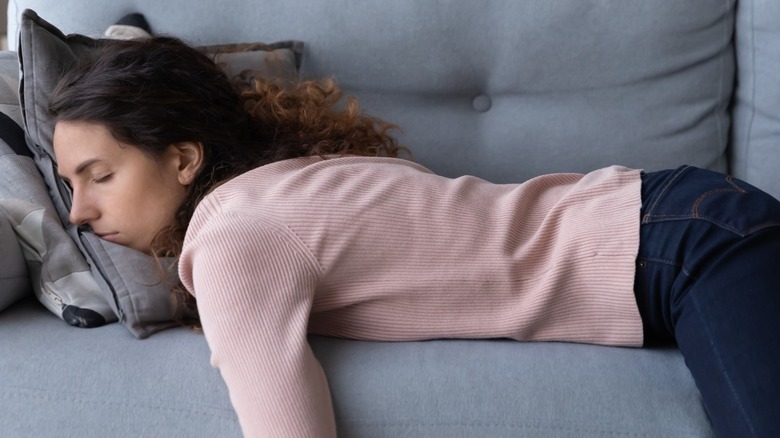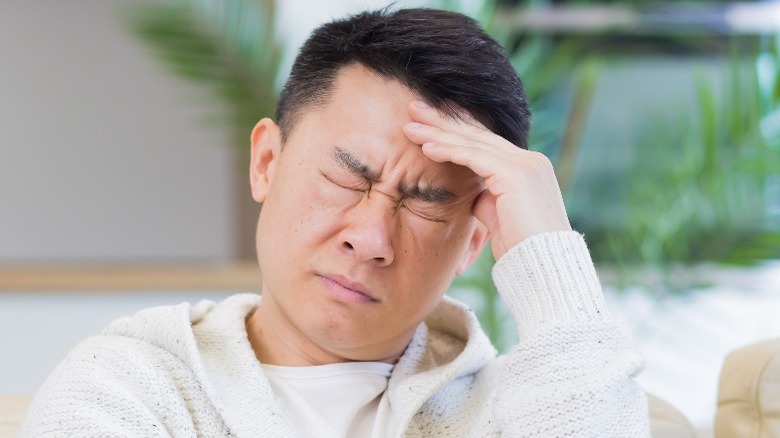Signs You're Going Through Caffeine Withdrawal
If you consume caffeine on a regular basis, you're not alone. According to the Centers for Disease Control (CDC), roughly four out of five American adults consume at least one caffeinated product daily.
Caffeine is a substance both naturally occurring and man-made (via MedlinePlus). It is a stimulant found in roughly 60 plants, including coffee beans, kola nuts, tea leaves, and cacao pods, among others. Products that contain manmade caffeine include "energy-bursting" snacks, drinks, and certain medications. You are most likely to get your caffeine from drinks, such as an 8-ounce cup of coffee, which can have up to 200 milligrams of caffeine, and cola, which contains up to 45 milligrams of caffeine. Health experts say it is safe for most adults to consume up to 400 milligrams of caffeine per day.
Since it stimulates the central nervous system, a serving of caffeine can be helpful when you need to feel more awake and energetic. However, be careful not to drink too much caffeine, or it could lead to health problems such as anxiety, shakiness, insomnia, and headaches. It could also lead to dependency, meaning you will need even more caffeine to feel its effects (per MedlinePlus).
Common caffeine withdrawal symptoms
If you're someone who has grown addicted to caffeine and tried to either quit or reduce your consumption, you may have experienced some form of withdrawal. According to the experts at Healthline, a number of possible withdrawal symptoms can surface within 12 to 24 hours of removing caffeine from your diet.
The most common type of caffeine withdrawal symptom is a headache as a result of a sudden increase in blood flow to the brain due to the absence of caffeine, Healthline reports. Caffeine withdrawal headaches can range in length and severity depending on the person. You may also feel drowsy when you experience caffeine withdrawal, especially if you are accustomed to drinking multiple cups of coffee a day to stay alert.
Also, while it may seem counterintuitive, removing caffeine or reducing your intake may increase anxiety (via Healthline). And yet, for some people eliminating caffeine may cause depression. So, the main point is to expect that eliminating caffeine can affect your mood in various ways. And, of course, don't be surprised if you're feeling cranky after you deprive yourself of your daily dose of java.
If you wish to reduce or eliminate caffeine without the pain of withdrawal, some tips from Healthline include removing caffeine slowly, staying well-hydrated, and getting good quality sleep to help you make it through a bit more smoothly.


